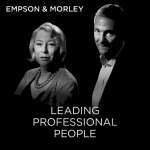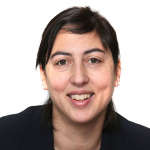London may have caught New York-based giant Davis Polk & Wardwell’s eye as early as 1973, but it’s only two years ago that the firm’s UK office launched an English law practice, following the January 2012 hire of former Freshfields Bruckhaus Deringer corporate partner Simon Witty and tax partner Jonathan Cooklin.Seventeen months later, the duo were joined by Will Pearce, who trained and became a corporate partner at Herbert Smith Freehills, before assuming a similar position at Davis Polk on 1 May 2013.
Along with his responsibilities in the English law department, Pearce (pictured) has also taken on the role of principal to the firm’s new training programme, which will accept between four and six trainees each year, and which offered vacation scheme seats to 19 graduates in 2013. This year, the firm plans to organize three vacation sessions, with each one expected to last two weeks and to see roughly eight students in attendance. So far, the vacation scheme format has included career-oriented presentations and seminars, meetings with Davis Polk lawyers, and a tour of the Kaplan Law School, where accepted trainees will be taking their Legal Practice Course (LPC).
Pearce believes that there is a growing place for US firms as providers of English law training for upcoming solicitors: ‘The legal world has changed beyond recognition in the last 20 years. Everything is now global. When I was applying for my training contract in the mid ’90s, there were 20 top and broadly similar UK law firms to choose from, if you wanted to pursue a career at an international commercial law firm: US law firms didn’t even register with graduates in the UK. Students’ choices now are very different. They focus on what type of law they want to focus on, what sort of environment they want to work in and the level of responsibility and quality of training they will receive.’
Pearce himself found the choice of a practice area particularly influential on his career. His beginnings showed no early loyalty to the legal profession: growing up in Birmingham, he enjoyed both the sciences and the French language, and initially wanted to pursue biochemistry at university. A scheduling conflict sabotaged that particular dream, and he instead dedicated himself to French and English legislation as part of the University of Warwick’s European law programme.
‘I enjoyed studying law at university, but I can’t say that law really clicked with me for the first two years’, he admitted, noting that he only genuinely began to engage with the subject after his year of studying abroad in France, when he discovered an attraction to corporate law.
His enthusiasm for the life of a deal lawyer never waned: he accepted a training contract with Herbert Smith, and qualified in September 1998 as a corporate solicitor with a focus on M&A and equity capital markets.
Now, legal work impacts Pearce differently: ‘I can, hand on heart, say that I really enjoy what I do. It’s a real privilege to work with smart people at the top of their game whether as colleagues, clients or lawyers on the other side of the table. I’m really lucky to be able to do something that I find intellectually and personally challenging and get paid for it’, he observed.
The appeal of corporate work for him is straightforward: ‘I like doing something positive, something constructive. With a corporate finance deal, you have two parties who are in the room to reach agreement on a deal that is a win-win for both sides. For me, litigation on the other hand is about picking a hole in someone else’s logic and arguing why you are right’.
Pearce was also drawn by the lesser duration of the average corporate transaction, which can last three-four months, where complex litigation cases can sometimes take many years before reaching a formal resolution.
‘I like the personal dynamic to a corporate deal. The interaction between the principals, their investment banking advisers and lawyers can be crucial to getting a deal across the line,’ Pearce mentioned.
Pearce has tried his hand at a wide selection of significant matters, such as the demutualisation and IPO of Standard Life (2006), the recapitalisation and eventual nationalisation of Bradford & Bingley (2008), Rio Tinto’s $15.2bn rights issue (2009), the refinancing and restructuring of JJB Sports (2009-2012), as well as Verizon’s $130bn acquisition of Vodafone’s holding in Verizon Wireless (2013).
Seventeen years of Herbert Smith Freehills tenure came to an end in 2013, when Pearce decided to join the fledgling English law practice of Davis Polk: ‘It was a very personal decision. I’d worked a lot with lawyers at Davis Polk in London, on the same or on the opposite side of transactions. The firm is incredibly well-regarded by clients, has very talented lawyers and a fantastically collaborative and collegiate team spirit. All things I value highly. To be able to help Davis Polk build out its English law practice in London was simply a unique opportunity.’
Part of that development process involves growing the firm’s own trainees. While the firm is flexible in terms of its intake, it is currently expecting to accept no more than six trainees a year in London.
‘In terms of the individual, trainees will be given a lot of a lot of responsibility, they will get to work in smaller teams directly with partners and senior associates’, he comments.
Likewise, the intake size is meant to allow the firm to retain a high number of trainees, which will in turn feed into the Davis Polk London growth strategy: ‘There is no numbers game, and we are not looking for a particular number of people to join us with a view to using the training contract as an extended interview process. We want to make sure we have the right people for the sustainable, long term development of our practice in the UK.’
While the training programme more directly concerns the London side of Davis Polk’s business, the firm intends to foster integration between its US and UK practices, with all trainees being given the option to take a three-month secondment to the New York office, and with associates being expected to work in joint international teams on most transactions.
Graduates interested in the programme will only need to submit a CV and cover letter, which Pearce advises should be concise and punchy at no more than two pages in length each.
He recommends that applicants should be honest and detailed about their grades, as well as careful to include reliable referees. Davis Polk legal recruiting manager Martha Jeacle also reminded the candidates to mention both when they’re graduating, and when they are eligible to begin their training contract.
As far as the cover letter goes, Pearce encourages applicants to answer the following questions: Why law? Why international corporate law (which future trainees should be aware will constitute a substantial amount of their work)? And last, but not least: why Davis Polk?
Candidates who are successful at this stage will advance to a first 45-60 minute interview with two partners, during which they will be given a corporate finance transaction scenario that will be discussed during the meeting. They will then follow up with a 20-30 minute conversation with two associates.
Pearce advises graduates to avoid giving answers they think their interviewers want to hear, and to keep a balanced, approachable attitude, showing confidence without straying into arrogance.
Pearce emphasizes that trainees will have to develop an understanding of UK and US jurisdictions, and to maintain a global and collaborative outlook: ‘The firm thinks in terms of regions – US, Asia, Europe, so on – and practice areas. It thinks very internationally, and it relies on excellent lawyers, client focus and teamwork. We need the teamwork element. We’re not really interested in people who’re only interested in themselves.’
ruxandra.lordache@legalease.co.uk
This article first appeared on the website of Lex 100, Legal Business’s sister publication.












